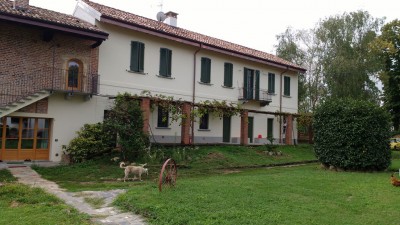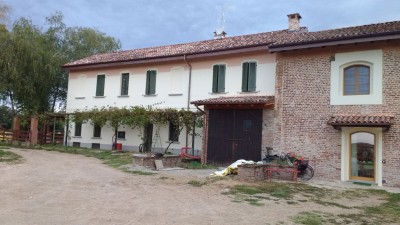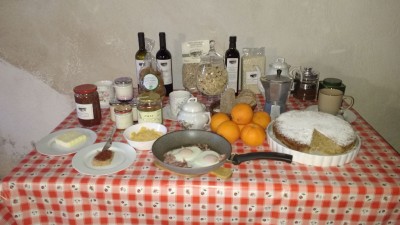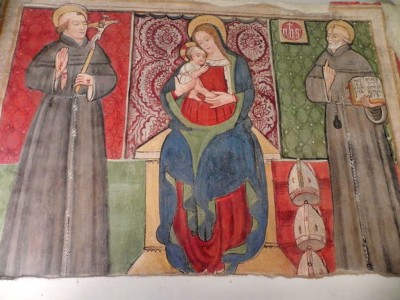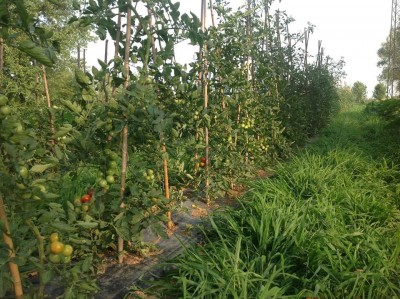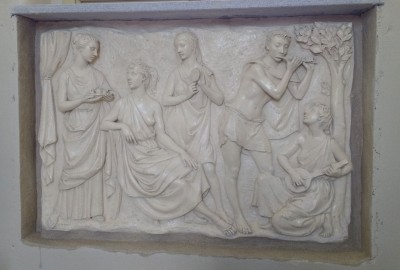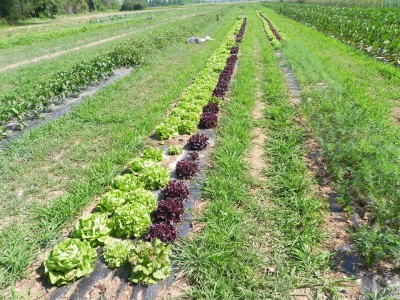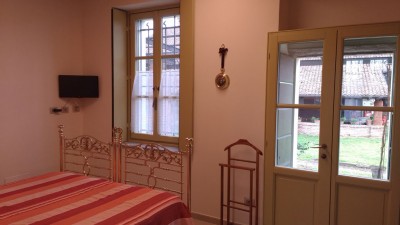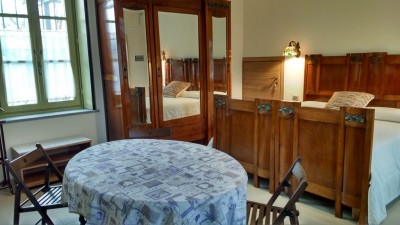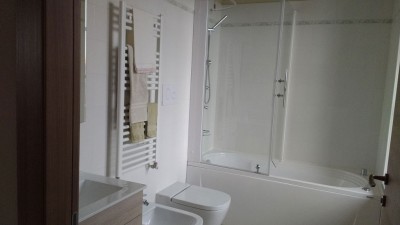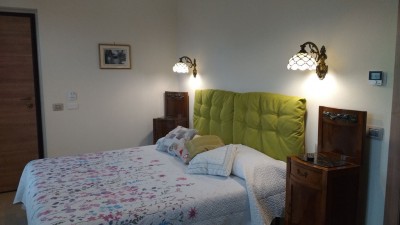Contact the abode
Located on the Naviglio Grande waterway, Cascina Poscallone is situated in a portion of Abbiategrasso’s territory that was formerly referred to as 'in Poscale'. Poscallo, or more correctly Poscale, denoted a location between the present-day Poscallone farmsteads (just below Cassinetta di Lugagnano) and what is now the Naviglio di Bereguardo. It is believed that Cascina Poscallone originated in the 1400s, perhaps as a grange of a Benedictine or Humiliati monastery. Two large frescoes, one of which has been restored, while the other is awaiting restoration, testify to this origin. 'Piscalis', in medieval Latin, refers to the abundance of fish and probably alludes to one or more fishponds along the Ticinello, the ancient canal that later became the Naviglio Grande. This would explain the farm's position, literally overlooking the Naviglio Grande, and the name it has been given. By the end of the 15th century, the construction of the Monastery of the Annunciata in Abbiategrasso had begun, and this is the most likely date to which the Poscallone frescoes can be traced. Saint Bernardino of Siena passed through Abbiategrasso in 1431 and is in fact depicted in both frescoes.
We have no documents to show us with any degree of certainty what happened to Poscallone during the 16th century. We do however know that Poscallone, or 'Poscallo di sopra', had become a private farm by the end of the 16th century, and it is possible that this privatisation is related to the decline of the Humiliati order. There is also evidence of the presence of the Humiliati fraternity in Abbiategrasso – before the order was declared heretical during the Counter-Reformation – as there is another Cascina farm in the vicinity, just a few hundred metres away on the Naviglio: namely, the farmstead of Santa Maria in Campo, which was formerly a church. However, there is no evidence to support the theory that Poscallone was their property; it may instead have belonged to the ancient Benedictine monastery of San Martino in Abbiategrasso. We are still hoping that a historian or scholar may be able to address and resolve this question.
The extent of the Cascina Poscallone and its land has remained virtually unchanged over time: in 1802, when the farmstead was owned by the Negri family of Cassinetta, it corresponded to 283 ‘pertiche’ (circa 620 metres). The building and its adjacent land changed hands over time until they came into the possession of the current owners in 2011, who have carried out an ambitious project of conservation and restoration. To date, two of the buildings have been renovated: the owners' residence in 2017 (recovering the oldest fifteenth-century part of the property which contains one of the frescoes) and the 20th-century building, restored in 2018, which contains a two-room apartment for the employees and the farmhouse agritourism accommodation.
AGRITOURISM ACCOMMODATION CLOSE TO MILAN
If you are looking for an authentic farmhouse immersed in nature, then you have come to the right place! Cascina Poscallone offers comfortable rooms where visitors can stay and experience genuine rural hospitality. Guests will experience a slow-paced lifestyle, far removed from the chaos of the nearby city.
THE LAND AND ITS ORGANIC PRODUCE
Ten hectares of converted organic agricultural land are attached to the farmhouse. Vegetables and fruits are cultivated here. There is an orchard, and free-range hens and chickens are raised here. If you appreciate zero-kilometre local produce, enjoy the taste of freshly harvested vegetables and value all things organic, Cascina Poscallone is the place for you.
PRODUCTS AVAILABLE ALL YEAR ROUND
- Non-organic Carnaroli rice (1 kg) €3.00
- Whole wheat pasta (500 g) €3.00
- Chickpeas (400 g) €2.00
- Extra virgin olive oil (750 cc) €10
- Free-range eggs (6 eggs) €3.00
- Wine: Syrah (red) DOC, Nero d'Avola (red) DOC, Grillo (white) DOC - ALL €4.00 per bottle
SEASONAL PRODUCTS
Cabbage, Chinese cabbage, cavolo nero, broccoli, courgettes, pumpkin, cucumbers, peas, onions, herbs, spinach, mizuna, mustard, radishes, lettuce, beetroot, chickweed, dandelion, wild herbs, chicory, tatsoi, pak choi, strawberries, raspberries, blackberries, watermelon.
